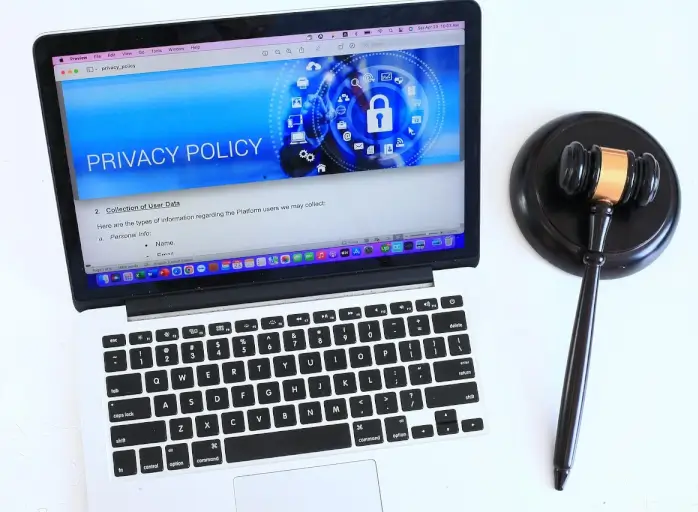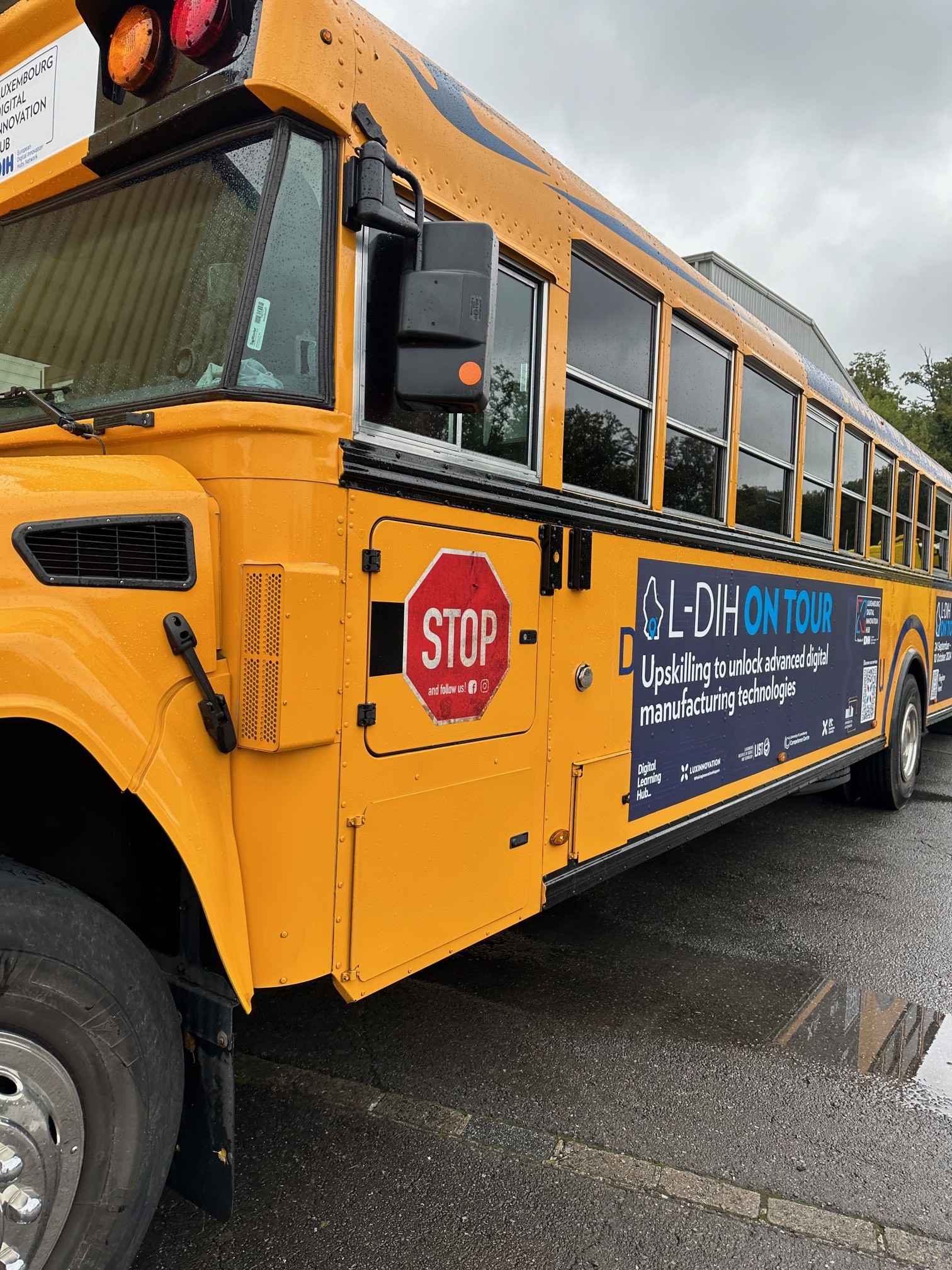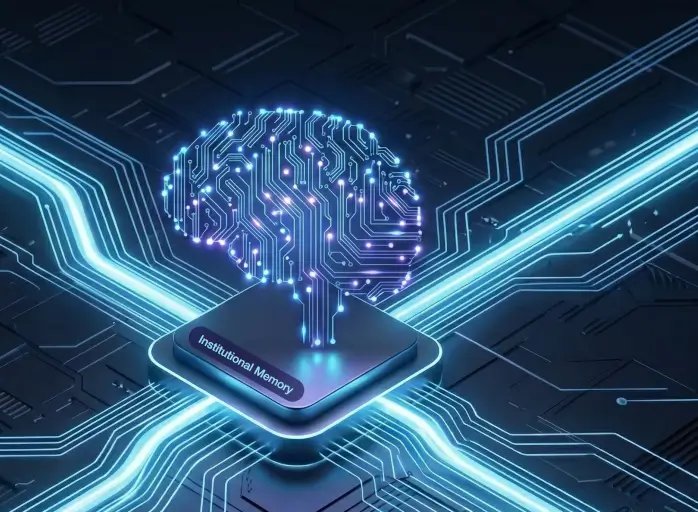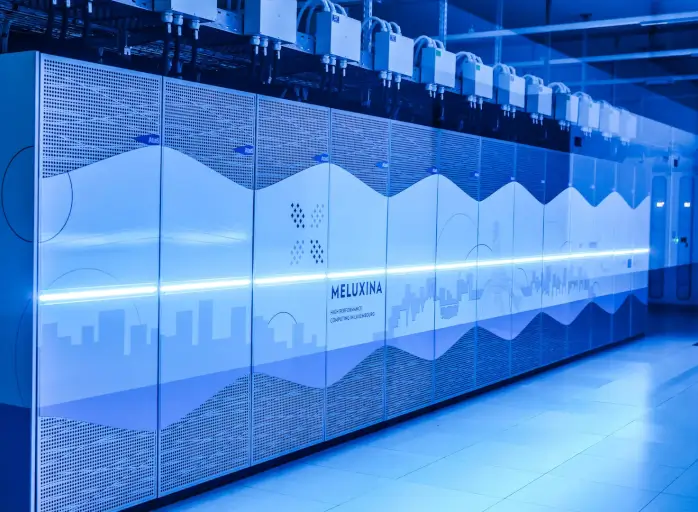

L-DIH ON TOUR: “Leaving no company behind”
The tour will run until 10 October 2024. Register now.
 Abigail Okorodus
Abigail Okorodus
What is the objective of the collaboration between the DLH and the 2024 L-DIH On Tour?
The collaboration between the Digital Learning Hub and the Luxembourg Digital Innovation Hub (L-DIH) has been ongoing for at least two years. Since the inception of the Digital Learning Hub, we have had strong connections with Luxinnovation and, in particular, the L-DIH. For us, it is crucial to understand industry training needs, and there is no entity better placed than the L-DIH to engage with companies, listen to their requirements, and relay them to us to develop the necessary training programmes. The bus tour further enhances our ability to reach companies throughout the country.
We have since expanded our training catalogue, which now includes topics relevant for many sectors including manufacturing.
Serge Linckels, Digital Learning Hub
What role will the DLH play during the tour?
 We will be showcasing our training catalogue, gathering feedback and addressing the training needs of companies. Two years ago, we started out by focusing on core domains like coding and cybersecurity. We have since expanded our training catalogue, which now includes topics relevant for many sectors including manufacturing, such as sensor technology, design thinking and user experience.
We will be showcasing our training catalogue, gathering feedback and addressing the training needs of companies. Two years ago, we started out by focusing on core domains like coding and cybersecurity. We have since expanded our training catalogue, which now includes topics relevant for many sectors including manufacturing, such as sensor technology, design thinking and user experience.
So far, we have over 250 training programmes. We now aim to tailor specific programmes with the L-DIH to meet demands in the manufacturing sector. However, for us, it is not just about the topics, but also about the way you train people. The challenge lies in adapting our programmes for technicians and machinery operators who may lack IT expertise. Can we merge different audiences in the same programme? If not, what could be the best approach to adopt? These are also areas we would like to explore with the companies.
Given that upskilling for Industry 4.0 is this year’s central theme, what initiative is the DLH undertaking to support and advance this goal?
One of our primary missions is to reskill individuals from other domains into new IT fields. At the same time, we also offer advanced training programmes for professionals needing to update their skills in several areas like cybersecurity, emerging technologies such as robotics and AI, or regulations. We have, for instance, the EU AI Act, GDPR standards and other new laws that have been introduced and require companies to understand how they impact them. All this is also linked to upskilling, and we offer training on these topics in our catalogue.
One of our primary missions is to reskill individuals from other domains into new IT fields.
How does DLH address varying levels of digital readiness among different companies and industries?
Luxembourg wants to become an IT nation and remain at the forefront of the digital transformation. We have a lot of companies and government administrations who are leading in this domain and serve as a great model. At the same time, there are others who are a little bit behind, so they still have the good old textbooks or use Excel sheets instead of some smart applications. This doesn’t mean they are bad companies, it's just the way they’ve done things for a very long time. The challenge now is how to convince them to take part in the digital transformation.
The government is transforming a lot of its administrations, and several services are only available over MyGuichet or online platforms, so such classical companies will have to adapt one way or the other. With our training programmes, we aim to include all companies in this transformation, leaving no company behind. Our new 'Everyday IT' initiative, launching this autumn in collaboration with the Ministry for Digitalisation, focuses on providing fundamental digital training to these companies and citizens to catch up in the digital transition. We hope to be able to present this initiative in detail during the tour.
The challenge now is how to convince them to take part in the digital transformation.
What are some of your expectations for the 2024 L-DIH On Tour?
With 11 planned stops at manufacturing companies, partner organisations and technical schools, this year’s bus tour offers a comprehensive view of Luxembourg's digital landscape. We look forward to showcasing initiatives from the DLH that advance manufacturing, engage with a diverse audience, leverage insights gained from the bus tour and convey our commitment to supporting all companies through our training programmes.







